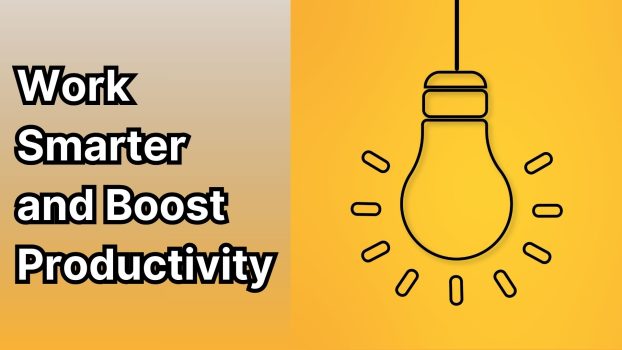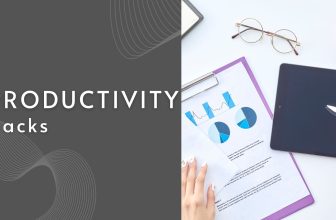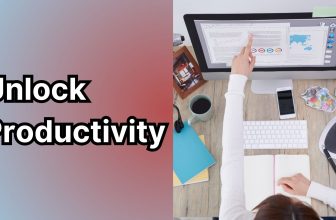If you want to succeed in today’s fast-paced world, learning how to work smarter — not just harder — is essential. Working smarter means prioritizing our tasks effectively, managing our time wisely, and using the best tools to increase our productivity throughout the day. Instead of exhausting ourselves with long hours and scattered focus, you’ll find that smarter work strategies help you accomplish more in a short period of time while reducing stress and mental clutter.
Whether you’re a business owner, part of a team, or managing personal and professional goals, adopting smarter work habits will empower you to make better decisions, balance work life and life balance, and build long-term success that feels sustainable. This is the core idea behind working smarter and harder — leveraging our time and energy in ways that truly matter to maximize results without burning out.
Optimizing Your Workflow
1. Prioritize Tasks Using the Eisenhower Box
One of the best ways to work smarter is by prioritizing your tasks with the Eisenhower Box, a proven time management tool that helps you distinguish between urgent and important duties. By categorizing your tasks into four quadrants—urgent and important, important but not urgent, urgent but not important, and neither urgent nor important—you can make smarter decisions about what to focus on immediately, what to schedule, delegate, or eliminate entirely.
This approach helps reduce mental clutter and stress, ensuring your daily efforts align with your long-term success and professional goals. Ultimately, it improves your work-life balance and overall productivity.
2. Implement the Pomodoro Technique
The Pomodoro Technique is a simple yet powerful method that breaks your work into focused intervals, usually 25 minutes long, followed by short breaks. This technique enhances focus and helps you maintain peak concentration during each session. By working in these small bursts, you avoid burnout and reduce decision fatigue, allowing you to tackle tasks more effectively in a short period of time.
Using this method can also improve mental health by balancing intense work phases with well-timed rest, making you a smarter, more efficient worker over the course of your day.
3. Limit Multitasking
Although multitasking may seem like a way to get more done, it often reduces productivity and increases errors. When you focus on one task at a time, you work smarter by giving your full attention to the task at hand, improving the quality and speed of your output.
This practice supports better time management and helps minimize mental clutter, allowing you and your team members to perform at your best without spreading your energy too thin. Prioritizing tasks and working single-mindedly boosts not just short-term output but also contributes to effective project management and long-term success.
4. Automate Repetitive Tasks
Work smarter by taking advantage of tools and technology that automate routine, repetitive tasks. Whether it’s scheduling emails, managing invoices, or routine data entry, automation can save you significant time and allow you to focus on tasks that require creativity and critical thinking.
For small business owners and business teams alike, automating workflows not only increases efficiency but also reduces error and stress. This enables everyone to concentrate on higher-value activities that drive growth and improve overall work-life harmony.
Enhancing Personal Effectiveness
5. Set Clear Goals
To truly work smarter, setting clear and specific goals is fundamental. Defining what you want to accomplish each day or week helps you focus your energy on meaningful tasks that align with your personal professional objectives and business priorities.
Clear goals provide direction, reduce the risk of wasted effort, and make it easier to determine which activities deserve your attention. This focused approach not only enhances your decision-making but also supports maintaining a healthy work-life balance by preventing overwhelm from trying to do too much at once.
6. Take Regular Breaks
Taking regular breaks throughout your workday is a game-changer for improving productivity and protecting your mental health. Research shows that short, frequent breaks help recharge your brain, reduce stress, and boost creativity.
These breaks, also called micro-breaks, allow you to return to tasks with renewed energy and sharper focus, which ultimately leads to better outcomes in less time. Scheduling breaks mindfully can help prevent burnout and maintain consistent performance over the long term, making it an important time management strategy for both small business owners and professionals alike.
7. Optimize Your Workspace
Your physical environment plays a powerful role in how effectively you work. A well-organized, clutter-free, and ergonomically designed workspace minimizes distractions and physical discomfort, which can sap your energy and concentration.
Consider factors like lighting, chair support, and desk layout to create a space that fosters focus and efficiency. Additionally, personalizing your area with inspiring elements or calming colors can help support a positive mindset, allowing you to work smarter and sustain high-quality output throughout the day.
8. Utilize Technology Wisely
In the digital age, the right technology can be your greatest ally in working smarter and saving valuable time. Use productivity apps and project management tools to streamline communications, track progress, and automate routine operations.
However, it’s important to choose tools that genuinely fit your workflow to avoid decision fatigue caused by juggling too many platforms. Thoughtful integration of technology reduces mental clutter and supports better collaboration with your team members, ultimately driving improved efficiency and freeing up your time for higher-impact work.
Building a Smarter Work Environment
9. Foster Open Communication
Creating a smarter work environment starts with encouraging open communication among all team members. Transparent dialogue helps ensure everyone understands their roles, project goals, and deadlines, which leads to better coordination and fewer misunderstandings.
When communication flows freely, decision-making becomes more efficient, and problems get resolved faster. This collaborative atmosphere not only boosts productivity but also supports a healthier work-life dynamic by building trust and reducing workplace stress.
10. Delegate Effectively
Effective delegation is a cornerstone of working smarter and time management. Assigning tasks to the right people based on their skills and availability ensures work gets done more efficiently and at a higher quality. Delegating allows you to focus on high-impact work while giving others opportunities to grow and develop professionally.
Clear goal-setting and providing the necessary resources are essential parts of successful delegation, helping to reduce mental clutter and prevent burnout for both you and your team members.
11. Encourage Continuous Learning
Building a smarter environment means fostering a culture of continuous learning. Encourage yourself and your team to stay updated on industry trends, new tools, and productivity techniques. Investing time in personal and professional development sharpens your ability to adapt and improve decision-making over time.
This commitment not only enhances current performance but also prepares you for long-term success, keeping your business or personal goals aligned with evolving demands.
12. Maintain a Healthy Work-Life Balance
Lastly, smarter working isn’t just about productivity—it’s about sustainability. Striving for a balanced work-life enables you to recharge mentally and physically, which is essential for maintaining high performance. Setting boundaries, respecting personal time, and managing workload realistically reduce stress and support better mental health.
This balance improves motivation and creativity, enabling you to work smarter and harder without compromising your well-being or life balance in the long run.
Conclusion
Working smarter isn’t just a simple productivity hack—it’s a powerful mindset that reshapes how you tackle both work and life. By focusing on task prioritization, effective time management, and leveraging the right tools, you can significantly reduce stress and sharpen your focus, ultimately paving the way for long-term success.
Adopt strategies like setting clear goals, delegating tasks effectively, and committing to continuous learning. These approaches help create a work environment that fosters not only high performance but also a healthy work-life balance.
Don’t wait—start implementing these proven methods today to enhance your productivity and achieve sustainable results that enrich both your personal and professional growth.
FAQ
How can I prioritize tasks effectively to work smarter and boost productivity?
To prioritize tasks effectively, start by identifying and listing all tasks. Then, evaluate each one based on its urgency and importance. Frameworks like the Eisenhower Matrix or the 1-3-9 technique can help you organize tasks into critical, important, and less critical groups.
Focus on high-impact tasks first, plan your time using structured blocks, and adjust your priorities regularly to maximize productivity.
What are simple daily routines I can adopt to enhance my productivity?
Adopting simple daily routines can significantly boost productivity. Start by prioritizing tasks each morning and avoid checking your phone or email early. Practice gratitude journaling, use the one-minute rule to complete quick tasks, and block notifications to maintain focus.
Reflect on your progress at the end of the day, and consistently include short exercise sessions or time for personal passions. These habits create a balanced and productive routine.
How do I manage interruptions and distractions to maintain focus during work?
To manage interruptions, create a distraction-free workspace by decluttering, turning off notifications, and using website blockers. Prioritize your tasks with time blocking and take regular breaks using techniques like the Pomodoro technique.
Incorporate mindfulness or meditation to enhance focus. A healthy routine, including regular exercise, also improves concentration. Communicate clear boundaries with others to minimize disruptions during work.
What tools or techniques can help automate repetitive tasks and save time?
Leverage tools like Lindy, Zapier, ServiceNow, and Jira to automate repetitive tasks such as emails, CRM updates, IT workflows, and project management. Platforms like Gumloop and BugBug offer no-code AI automation for complex workflows and testing.
These tools enhance efficiency by allowing you to create custom, scalable workflows without the need for coding.







